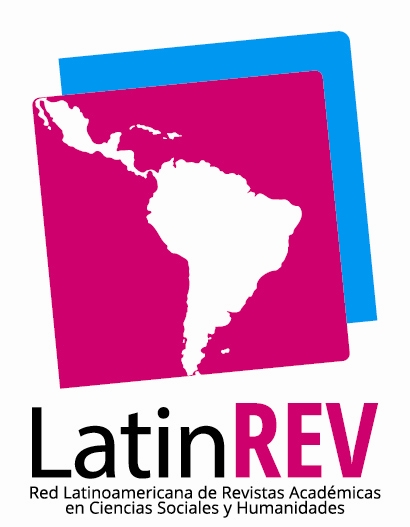Theoretical perspectives for the development of reading and writing skills in the learning of a foreign language
Keywords:
learning, foreign language, communication skills, reading, writingAbstract
Today's increasingly complex societies lead to a very high expectation that each person will act properly in them. In this context, learning a foreign language is as valuable as learning any of the other areas of knowledge. English stands out among other languages for its global character. Therefore, developing knowledge and skills in this language is necessary to function successfully in today's world. The process of learning a foreign language is also complex. Learning a language implies being able to communicate through it. In this sense, the teaching of languages for communication is an approach that emphasizes the need to develop different linguistic skills, and this highlights the collaborative nature of constructing meanings and recalls that language learning is social, i.e., it is carried out in interaction with others. Reading, due to the role it plays in the social construction of the individual, and writing, due to the effort required to produce a message in the target language, are skills that favor and at the same time function as indicators that learning is being achieved favorably. This communication aims to show some models and approaches about the development of the reading comprehension and written production skills in the foreign language class, in order to offer teachers a theoretical perspective that contributes to their planning of pedagogical proposals that optimize their students' learning.
Downloads
References
Anderson, John; Fincham, Jon; Qin, Yulin y Stocco, Andrea (2008). "A central circuit of the mind", en Trends in Cognitive Sciences, 12(4), 136–143.
Anderson, John; Bothell, Daniel; Byrne, Michael; Douglass, Scott; Lebiere, Christian y Qin, Yulin (2004). "An integrated theory of the mind", en Psychological Review, 111(4), 1036–1060.
ANDERSON, John (2000). Learning and memory: An integrated approach (2da edición). New York: John Wiley.
Birch, Barbara (2007). English L2 Reading: Getting to the bottom (2da edición). New York: Routledge.
Brown, Douglas (2000). Teaching by Principles: An Interactive Approach to Language Pedagogy (2da edición). California: Longman.
Celce Murcia, Marianne; Brinton, Donna y Snow, Ann (2014). Teaching English as a Second or Foreign Language (4ta edición). Boston: National Geographic Learning, HEINLE CENGAGE Learning.
Consejo Federal de Educación (2012). Núcleos de Aprendizaje Prioritarios. Lenguas Extranjeras. Educación Primaria y Secundaria. Resolución No 181/12.
Corpas, María Dolores (2014). "Análisis y evaluación de la comprensión lectora en Inglés como Lengua Extranjera en Educación Secundaria Obligatoria", en Philologica Urcitana: Revista Semestral de Iniciación a La Investigación en Filología., 11(Septiembre), 1–16.
Crystal, David (2003). English as a global language (2° edición). Cambridge: Cambridge University Press.
Cubo, Liliana (Coord.) (2005). Leo pero no comprendo. Estrategias de comprensión lectora. Córdoba: Comunicarte.
Flower, Linda y Hayes, John (1981). "A Cognitive Process Theory of Writing", en College Composition and Communication, 32(4), 365–387.
Freire, Paulo (1997). La Pedagogía de la Autonomía: Saberes necesarios para la práctica educativa, African American Studies Center. México: Siglo XXI.
Grabe, William (2009). Reading in a Second Language - Moving from Theory to Practice. (M. Long y J. Richards, Eds.). New York: Cambridge University Press.
Hidalgo, Eugenio y Manzano, Mirtha (2014). El proceso de comprensión en una lengua extranjera: Una propuesta para evaluar estrategias de lectura. Educacion XX1, 17(1), 309–326.
Hirvela, Alan y Belcher, Diane (2016). "Reading/writing and speaking/writing connections: The advantages of multimodal pedagogy", en Manchón y Matsuda (Eds.), Handbook of second and foreign language writing, 587-612. Boston: De Gruyter Mouton.
Hirvela, Alan (2013). "Teaching Integrated Skills", en Chapelle (Ed.), Encyclopedia of Applied Linguistics (pp. 1-4). Oxford: Blackwell Publishing Ltd.
Hyland, Ken (2006). English for Academic Purposes: An advanced resource book. New York: Routledge.
Hymes, Dell (1972). "On Communicative Competence", en Pride y Holmes (Eds.), Sociolinguistics. Selected Readings, 269–293. Harmondsworth: Penguin.
Ortega, Lourdes (2009). Understanding Second Language Acquisition. London: Routledge.
Oxford, Rebecca (1990). Language learning strategies, What every techer should know. New York: Newbury House Publishers.
Ruiz, José María y Fernández, Miguel Ángel (2011). "Arquitecturas cognitivas y cerebro: Hacia una teoría unificada de la cognición", en International Journal of Psychological Research, 4(2), 38-47.
Shrum, Judith y Glisan, Eileen (2010). Teacher’s Handbook Contextualized Language Instruction (4ta edición). Boston: Heinle, Cengage Learning.
Van Dijk, Teun y Kintsch, Walter (1983). Strategies of Discourse Comprehension. New York: Academic Press.
Vygotsky, Lev (1978). Mind in Society: The development of higher psychological processes. Cambridge: Harvard University Press.
Downloads
Published
Issue
Section
ARK
License
Copyright (c) 2021 Pamela Alicia Femenía Alcaráz

This work is licensed under a Creative Commons Attribution 4.0 International License.






